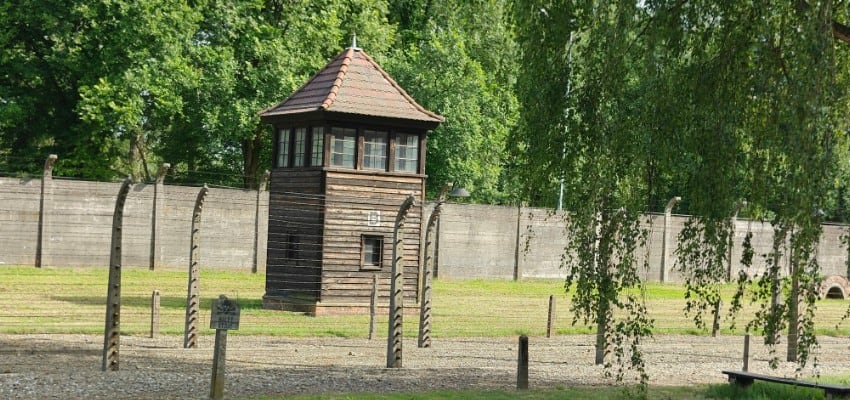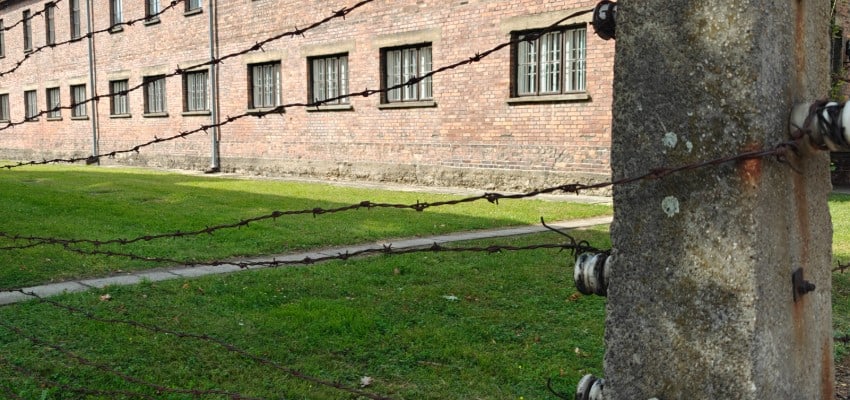Editor’s Note: Holocaust Remembrance Day is more than a moment of reflection; it is a call to action in an era where technology shapes both truth and deception. This year’s European Parliament commemoration highlighted not only the solemn memory of the past but also the challenges of preserving historical integrity in a digital landscape rife with misinformation, surveillance, and ethical dilemmas. The intersection of AI, privacy, and historical truth raises urgent questions about how we safeguard memory while preventing the misuse of technology. For professionals in cybersecurity, information governance, and eDiscovery, this article serves as a crucial reminder that the lessons of the Holocaust remain deeply relevant in our efforts to navigate the digital age responsibly.
Content Assessment: Honoring Holocaust Remembrance Day in the Digital Age
Information - 92%
Insight - 92%
Relevance - 94%
Objectivity - 90%
Authority - 92%
92%
Excellent
A short percentage-based assessment of the qualitative benefit expressed as a percentage of positive reception of the recent article from ComplexDiscovery OÜ titled, "Honoring Holocaust Remembrance Day in the Digital Age."
Industry News – Data Privacy and Protection Beat
Honoring Holocaust Remembrance Day in the Digital Age
ComplexDiscovery Staff
As we reflect on this past Monday’s Holocaust Remembrance Day, we are reminded of its enduring importance—not only as a solemn tribute to the victims but also as a crucial lesson for today and a stark warning for the future. The significance of this day extends beyond remembrance; it challenges us to examine the role of technology, privacy, and ethics in an increasingly digital world where historical truth is both preserved and threatened.
European Parliament Commemorates Holocaust Remembrance Day
The European Parliament’s observance of Holocaust Remembrance Day this year underscores the ongoing need for remembrance in the face of rising antisemitism and global conflicts. In a special plenary session held in Brussels, MEPs gathered to honor the victims of the Holocaust and reaffirm their commitment to preserving its memory.
European Parliament President Roberta Metsola set the tone for the commemoration, emphasizing the relevance of Holocaust remembrance in today’s world. The session included poignant musical performances, such as Pál Hermann’s concerto and Maurice Ravel’s “Kaddish,” serving as powerful reminders of the cultural devastation inflicted by the Nazi regime.
Beyond honoring the past, the commemoration highlighted the complex relationship between historical memory and contemporary challenges. Discussions among MEPs and community leaders reflected on the difficulty of upholding Holocaust remembrance amid political tensions, global conflicts, and the spread of misinformation. The European Parliament’s event serves as a microcosm of the broader struggle to maintain the integrity of historical truth while navigating modern geopolitical and technological threats.

The Role of Technology: Past and Present
The Holocaust stands as a chilling reminder of how technology can be weaponized against humanity. The Nazi regime’s use of Hollerith punch card machines, supplied by IBM, allowed for the efficient processing of census data and the tracking of individuals in concentration camps. This early form of data-driven oppression serves as a haunting precursor to modern concerns about privacy, surveillance, and the misuse of information.
Today, with the rapid evolution of artificial intelligence, biometric surveillance, and mass data collection, the lessons of the Holocaust take on renewed urgency. Governments and corporations amass vast amounts of personal data, often without adequate ethical oversight. The potential for state and corporate overreach—whether through authoritarian regimes exploiting AI for surveillance or private companies profiting from unregulated data mining—raises serious parallels to the systemic information-gathering that once facilitated genocide.
AI: A Double-Edged Sword for Historical Remembrance
Artificial intelligence presents both an opportunity and a threat to historical truth and Holocaust education. On the one hand, AI-driven tools are revolutionizing how we preserve and share survivor testimonies, reconstruct historical events, and analyze archival data. Projects like holographic AI interviews allow future generations to engage with Holocaust survivors in an interactive way, ensuring that their voices endure.
However, these same AI capabilities introduce significant risks. The rise of deepfake technology and AI-generated disinformation creates the dangerous possibility of fabricating “historical evidence” that fuels Holocaust denial and revisionism. In recent years, manipulated media and AI-generated fake testimonies have already been used to distort historical narratives—a chilling reminder of the power AI holds in shaping public perception.
Without strong digital safeguards, education, and media literacy, the very technologies that help preserve history could also be weaponized to rewrite it. This underscores the urgent need for ethical AI development, fact-checking mechanisms, and stringent content verification to prevent history from being erased or manipulated.

Parallels to Current Conflicts: The Case of Ukraine
The war in Ukraine presents stark reminders of the intersection between technology, conflict, and human rights violations—echoing some of the challenges seen in past atrocities. The targeting of civilians, mass displacement, and documented war crimes bear haunting similarities to historical events, reinforcing the need for global vigilance against crimes against humanity.
Moreover, the use of AI-driven warfare, cyber disinformation campaigns, and digital propaganda amplify concerns about the manipulation of historical truth in real time. Just as Nazi propaganda shaped public perception, today’s AI-powered misinformation campaigns have the ability to distort reality, influencing global narratives about ongoing conflicts.
Looking Forward: The Ethical Responsibilities of Technology
Holocaust Remembrance Day should serve as a catalyst for action—not just in remembering the past but in ensuring that technological advancements do not become tools of oppression. The digital age presents unprecedented ethical challenges, and it is our responsibility to ensure that history guides our decision-making. To truly uphold the promise of “Never Again,” we must strengthen privacy protections and ethical AI guidelines to prevent the misuse of data and surveillance technologies. Education on the dangers of deepfakes, AI-driven disinformation, and historical revisionism is essential in combating the distortion of truth. Technology must be developed and applied in ways that unite rather than divide, preserve rather than distort, and inform rather than manipulate. The lessons of the Holocaust are not confined to history books; they are alive and urgently relevant in our digital age. By remembering yesterday, acting today, and planning for tomorrow, we can honor the victims of the past while safeguarding the rights and dignity of future generations. Technology must be wielded responsibly—always with ethics, humanity, and truth at its core.
News Sources
- Holocaust Remembrance Day: 80th anniversary of the liberation of Auschwitz
- MEPs commemorate Holocaust Remembrance Day
- IBM and the Holocaust – Wikipedia
- Auschwitz survivors marking 80 years since Nazi death camp’s liberation
- Holocaust survivors will be able to share their stories after death thanks to a new project
- Investigating War Crimes Can Help Bring Russia to Justice
Reference: All images were captured by Rob Robinson at Auschwitz-Birkenau in June 2024. They are reproduced with explicit permission from the photographer. Usage of these images is intended solely for educational and documentary purposes, preserving the historical record and respecting the significance of the location.
Assisted by GAI and LLM Technologies
Additional Reading
- From Hollerith to Holocaust? The Impact of Technology and Privacy
- Geopolitics Archives – ComplexDiscovery
Source: ComplexDiscovery OÜ



























